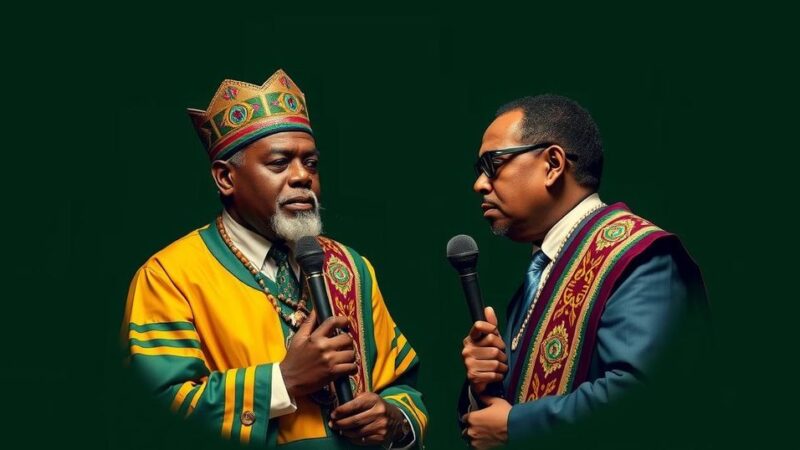Jair Bolsonaro’s right-wing party has achieved notable success in Brazil’s municipal elections, coming first in vital local races, including a narrow victory in Sao Paulo against leftist candidate Guilherme Boulos. Bolsa’s party won two mayoral positions and advanced in nine others, despite some setbacks such as in Rio de Janeiro. With a second round of voting scheduled, the elections signify broader implications for Brazil’s political direction amid challenges like disinformation and violence.
In Brazil’s recent municipal elections, former President Jair Bolsonaro’s right-wing party has gained significant ground, particularly in Sao Paulo, the country’s economic hub. Candidate Ricardo Nunes, an ally of Bolsonaro, emerged as the frontrunner with 29.4 percent of the votes, narrowly ahead of leftist contender Guilherme Boulos, who secured 29 percent. Outsider candidate Pablo Marcal, known for his populist appeal, finished third with 28.1 percent and was subsequently eliminated from the race. A second round of voting is scheduled for October 27. Despite the successes in municipal elections, Bolsonaro’s party did not perform uniformly across Brazil. In Rio de Janeiro, centrist candidate Eduardo Paes triumphed with a decisive 60.4 percent of the votes, defeating Bolsonaro’s former intelligence chief, Alexandre Ramagem, who garnered 30.8 percent. The election results represent a pivotal moment for both the left and right wings of Brazilian politics, with President Luis Inacio Lula da Silva’s camp hoping to enhance their presence in local governments against Bolsonaro’s party. More than 150 million Brazilian voters participated amid pressing national issues such as wildfires and drought, despite these environmental concerns receiving little attention during the campaign. The situation was exacerbated by a surge in violence leading up to the polls, prompting the deployment of over 23,000 soldiers across approximately 5,500 municipalities for security. Disinformation campaigns have also heavily influenced the electoral landscape, particularly through social media channels, which faced scrutiny for spreading false information. The elections have sparked intense discussions regarding the integrity and future direction of Brazilian politics, as both sides mobilize to secure their influence in local governance.
The municipal elections in Brazil are a critical indicator of the political landscape, reflecting the ongoing contest between leftist and right-wing factions following significant political shifts in recent years. Jair Bolsonaro’s administration faced substantial opposition from President Luis Inacio Lula da Silva’s leftist government. The municipal elections thus serve as a measure of the current political climate and public sentiment, particularly in key cities like Sao Paulo and Rio de Janeiro where major candidates and parties engage in fierce competition. The deployment of military personnel for security purposes demonstrates the heightened tensions surrounding the electoral process, exacerbated by social media’s role in disseminating disinformation.
In conclusion, the results of Brazil’s municipal elections signal a consolidation of power for Bolsonaro’s right-wing party, particularly illustrated by their performance in major cities such as Sao Paulo. However, setbacks in places like Rio de Janeiro highlight a complex political environment where diverse voter sentiments continue to shape local governance. The elections also underscore the persistent challenges of violence and disinformation, which remain critical issues as Brazil navigates its political future. As the second round approaches, the political stakes will undoubtedly continue to escalate, representing a pivotal moment in Brazil’s democratic landscape.
Original Source: www.france24.com






